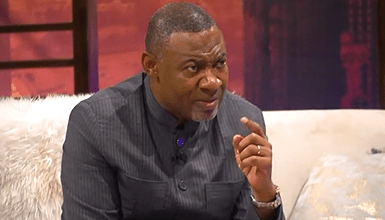‘It was just entertainment’- Medikal defends decision to perform with Sister Derby at O2 Arena

Ghanaian Rapper Medikal has responded to criticisms he received for performing on stage with his ex-girlfriend Sister Derby at his most recent 02 Indigo event in London.
Medikal took the decision amid rumours about troubles in his marriage to actress Fella Makafui.
Speaking in an interview on Accra-based UTV, Medikal clarified that his reason was to give fans a live performance of a popular song hey had both worked on.
He stressed that the goal of the performance was to provide fans a better live concert experience, especially for those who had only heard the song via his music videos and Snapchat account and had never witnessed a live performance.
According the whole thing is mere entertainment and not to spite Fella Makafui as it’s been suggested.
“She is someone I have a song with, a song people know about, and I wanted people to feel a live performance of what they watch on my Snapchat and in my music videos,” Medikal stated.
“So that’s what it is, not anything new. I wasn’t trying to prove any point. I was just trying to have fun and let my fans have an experience of a great event. This is not disrespect anyone, this was just entertainment,” he said on United Showbiz, May 4.

Despite his defense, several critics have called his conduct insulting to his ex-wife and said that, under the current situation with Fella Makafui, the public show with Sister Derby was improper.
Meanwhile, addressing the supposed breakup of his marriage, Medikal urged that the success of the event should rather be the topic of discussion and not his divorce with ex-wife, Fella.
He stressed that their breakup is not the first to have happened and Ghanaians should move on with their lives.







